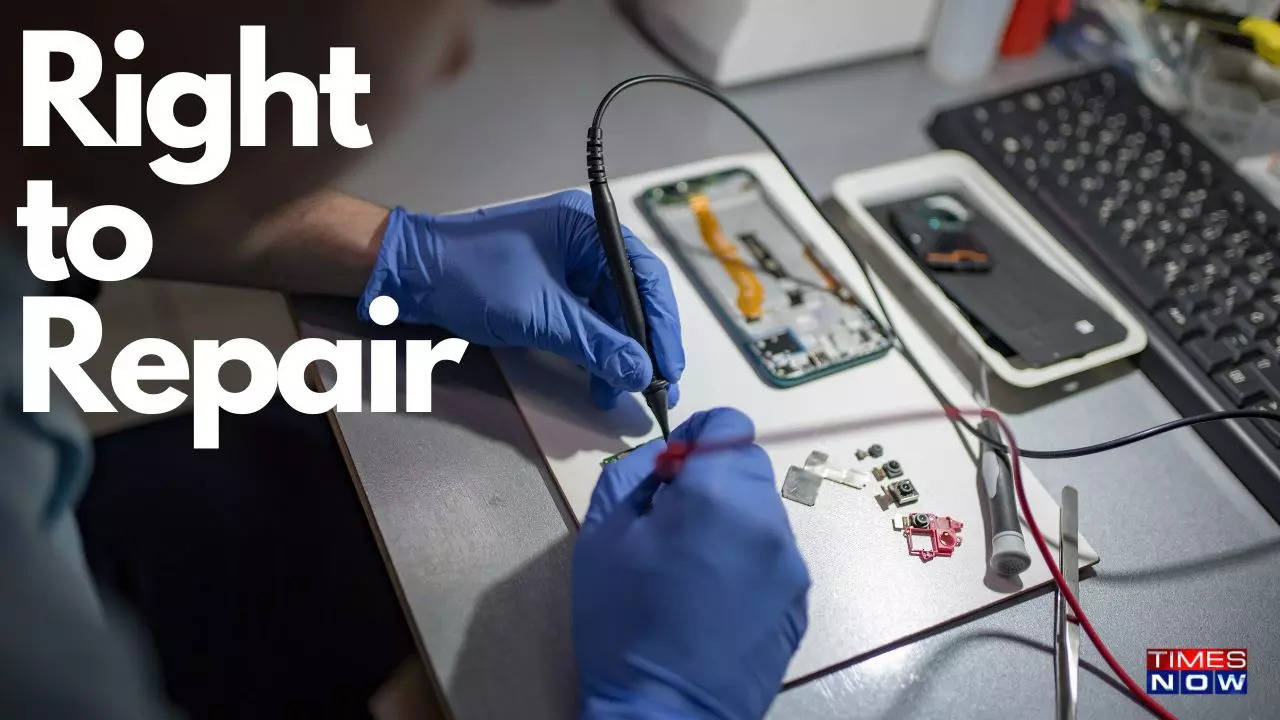
A memorandum of understanding was also signed between the Consumer Affairs Department and IIT (BHU), Varanasi as well as launched a capacity building program of consumer commissions.
On the ‘right to repair’ portal, manufacturers will share the manual of product details with customers so that they can either repair by themselves, by third parties, rather than depend on original manufacturers. Initially, mobile phones, electronics, consumer durables, automobiles and farming equipment will be covered.
Speaking on the theme “Effective disposal of cases in consumer commission” on the occasion of National Consumer Day, Goyal praised the consumer commissions for disposing of higher number of pending cases in last six months and expressed confidence of eliminating the backlog of cases across the country .
“In a short span of six months, we have doubled the disposal of pending cases. About 90,000 pending cases were disposed (between July and November this year),” he said. About 38,000 pending cases were disposed of by consumer courts in the year-ago period.
Goyal said there will be ramp up in the disposal of pending cases and elimination of the backlog in the days to come.
The consumer empowerment is going to be a paramount feature of a developed India and called for keeping consumers at the center of all the initiatives, he said.
Goyal further said his ministry is making efforts keeping in mind what the prime minister has articulated — convergence, capacity building, and climate change — to make consumers’ life easier and promote ease of doing business.
He emphasized that 3T’s — Technology, Training and Transparency — will help towards achieving greater consumer awareness and greater service to our consumers.
Minister of State for Food and Consumer Affairs Sadhvi Niranjan Jyothi said it is a good sign that the pendency of consumer cases are reducing which gives confidence to consumers that they will get justice.
Under the Consumer Protection law, a complaint is required to be disposed of within 90 days of its filing and within 150 days wherever expert evidence is required to be taken.
NCDRC President RK Agrawal said, “No one expects a case to be decided overnight. However, difficulty arises when the actual time taken for disposal of the case far exceeds its expected life span and a question is raised about the efficacy and efficiency of consumer commissions .” When the law mandates quick disposal of cases, several years of delay in deciding the cases always puts a “stigma” on the object for which the commissions were established in the 1986 act, he said, adding that there is a need to look into reasons for the delay.
Agrawal said the disposal rate of complaints in the consumer commissions has been on an average of 89 percent. Since the inception of consumer commissions, there is still a backlog of 6.24 lakh cases as on December 16.
This “reveals that the consumer commissions have not been able to meet the expectations of the consumers and have in fact been under severe strain to fulfill the objectives for which they were enacted,” he said.
Agrawal further said the pendency in the national consumer commission is also not impressive as the pending cases were 22,896 as on December 16.
The COVID-19 pandemic, rise in cases owing to increased consumer awareness, non-functioning of consumer commissions, lack of infrastructure, resource manpower and funds, unnecessary adjournments, scope of multiple appeal — are some of the reasons behind huge backlog of cases, he said.
Agrawal, however, said the backlog cannot be wiped out without additional strength particularly when the institution of cases is likely to increase and not come down in the coming years.
“Wherever the pendency is more than 4,000 cases, the mandate of the law of having additional Benches should be followed to clear the backlog,” he suggested.
He said the state governments have to take action well in advance in filling up of vacancies of President and members and to maintain a panel of candidates for filling up of future vacancies also to avoid delay in appointments.
Among others, he also suggested clubbing of similar or connected matters, granting at least limited financial autonomy to the consumer commissions, reducing unnecessary adjournments besides following the principles of natural justice and adjudication through summary trials.
Meanwhile, Consumer Affairs Secretary Rohit Kumar Singh said the department held a special drive ‘Lok Adalat’ and ‘Grahak Madhyastata Samadhan’ to settle the pending cases and such initiatives will be continued in the future.
Talking about future challenges facing consumers due to technological advancement, Singh said that Meta verse, dark patterns in advertising, and banned ads on social media are some aspects that the department needs to analyze the regulatory landscape to protect the consumer interest and make it safe.
There are 673 consumer commissions in the country.
.